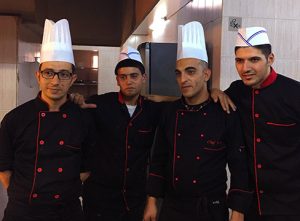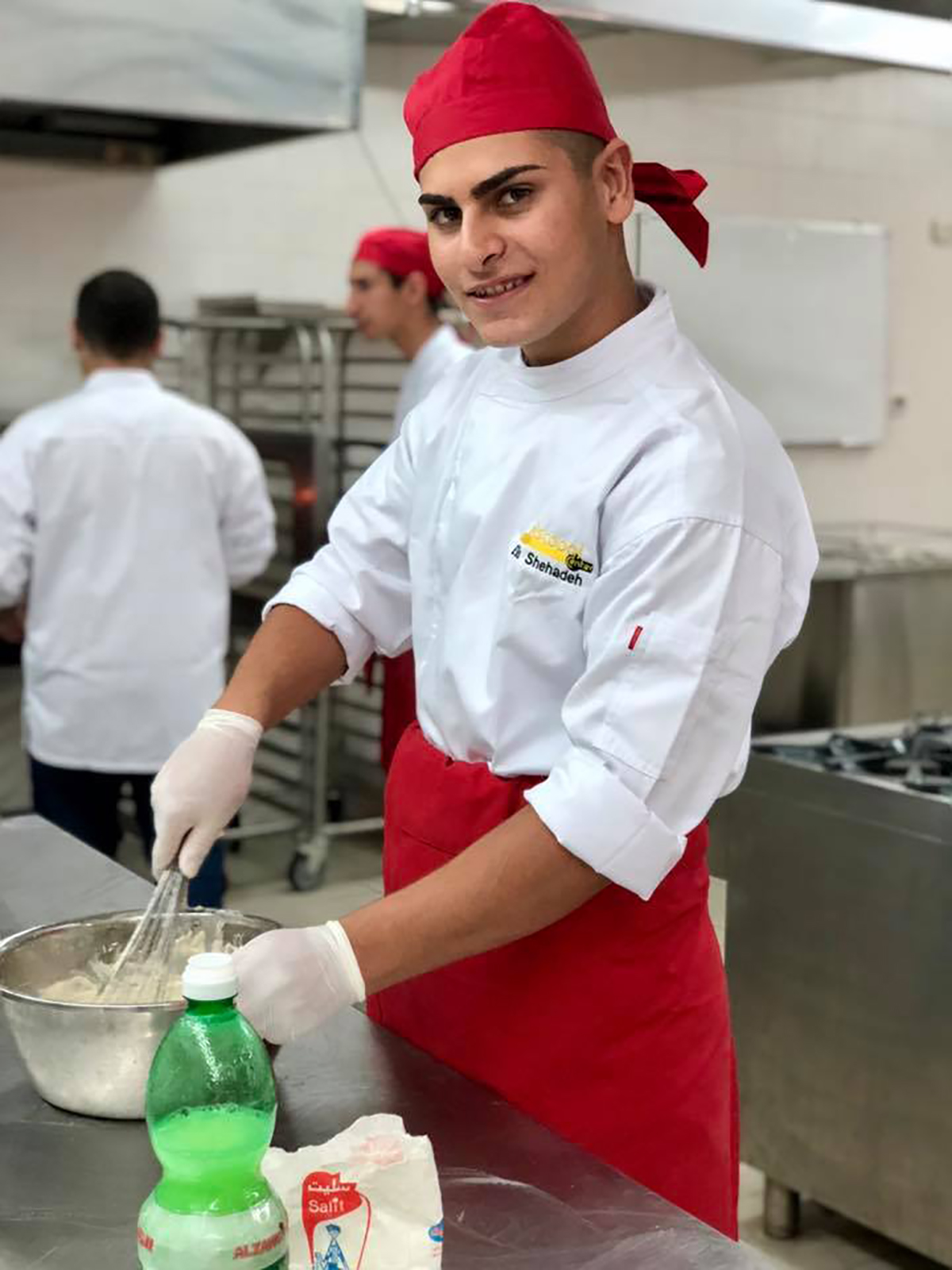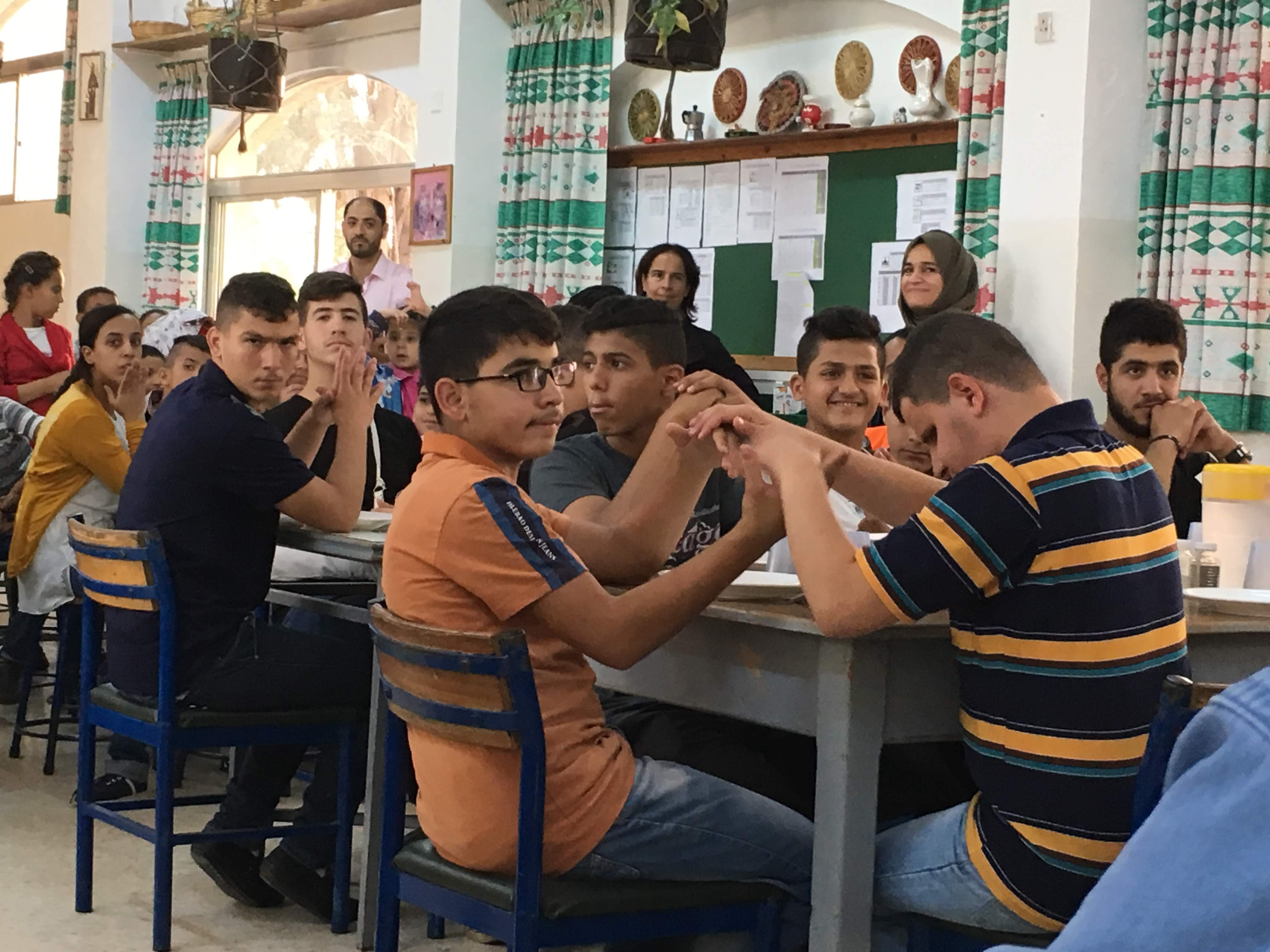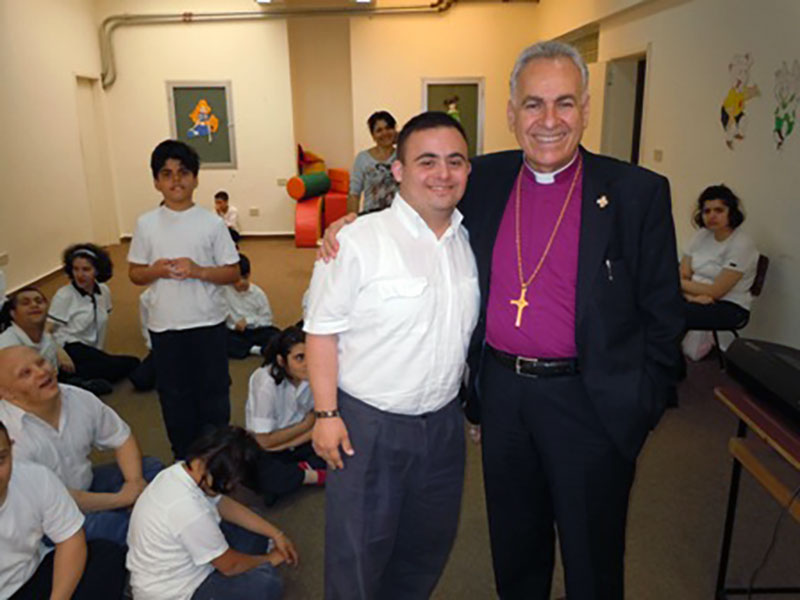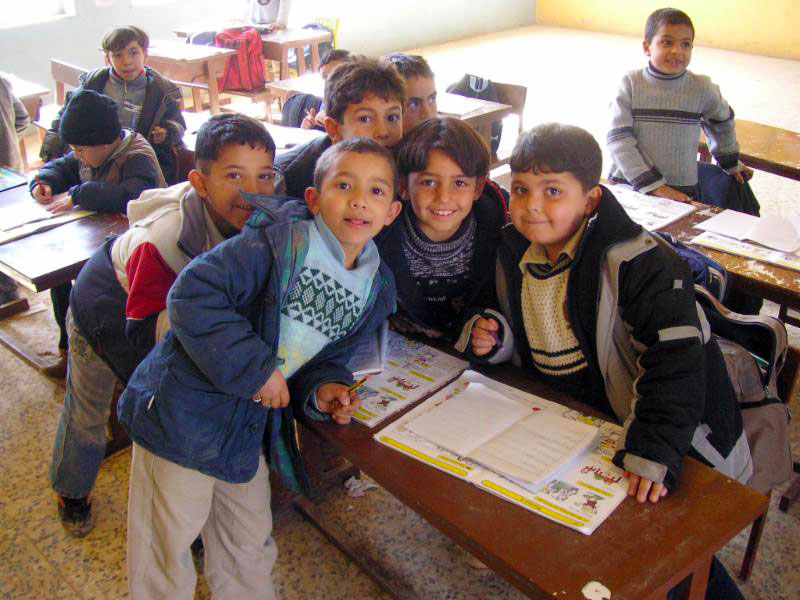Youth empowerment and employability
Fostering Economic Opportunity for Vulnerable Young Men and Women
According to the World Bank, only 41% residents of the West Bank between the ages of 15 and 29 were active in the labor market in 2017. In Jordan, among young Syrian refugees and children whose families have lived in Palestinian refugee camps for generations, the chance for employment as a path to economic stability is similarly small.
Enter the schools of the Episcopal Diocese of Jerusalem where vocational programming for high-risk students is deeply valued. Whether it is the co-ed wood-working workshop at the Holy Land Institute for the Deaf or the culinary arts program serving refugee youth at Schneller School in Jordan, the schools of the diocese recognize that real-world job skills are at the heart of providing the chance for meaningful employment and economic gains for vulnerable families.

